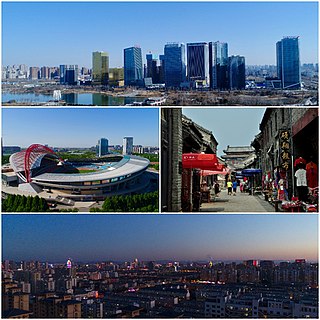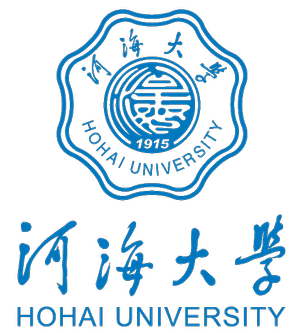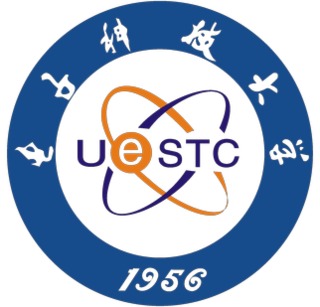See also
- Advanced Materials journal
- Materials science
As an important part of the national sustainable development strategy, the development of advanced materials is advancing the competitive nature and state of the art for Chinese industry. The State has put advanced materials high on its development agenda for the next decade and listed it among the key high-tech industry sectors that would be given priority for development by the State Council. At present, the pace of building China's advanced materials industry is accelerating. Advanced materials have been key fields in China's national R&D system (National High Technology Research and Development Program (863 Program) and National Basic Research Program (973 Program)).

The Harbin Institute of Technology (HIT) is a public science and engineering university in Nan'gang, Harbin, Heilongjiang, China. It is one of the top universities in China and now affiliated with the Ministry of Industry and Information Technology. The university is part of Project 211, Project 985, and the Double First-Class Construction.

The University of Science and Technology of China (USTC) is a public university in Hefei, China. It is affiliated with the Chinese Academy of Sciences, and co-funded by the Chinese Academy of Sciences, the Ministry of Education of China, and the Anhui Provincial Government. It is part of Project 211, Project 985, and the Double First-Class Construction.

The Ministry of Education of the People's Republic of China is a constituent department of the State Council, responsible for basic education, vocational education, higher education, and other educational affairs throughout the country. The Ministry of Education acts as the predominant funder of national universities and colleges in China. The ministry also accredits tertiary institutions, degree curriculum, and school teachers of the country.

Zibo is a prefecture-level city in central Shandong province, China. It borders the provincial capital Jinan to the west, Tai'an to the southwest, Linyi to the south, Weifang to the east, Dongying to the northeast, and Binzhou to the north.

Changzhou is a prefecture-level city in southern Jiangsu, China. It was previously known as Yanling, Lanling, and Jinling. Located on the southern bank of the Yangtze River, Changzhou borders the provincial capital of Nanjing to the west, Zhenjiang to the northwest, Wuxi to the east, and the province of Zhejiang to the south. The population of the Changzhou Municipality was 5,278,121 at the 2020 census. The city is the birthplace of Zhou Youguang who created the pinyin romanization system.

Showa Denko K. K., founded in 1939 by the merger of Nihon Electrical Industries and Showa Fertilizers, both established by a Japanese entrepreneur Nobuteru Mori, is a Japanese chemical company producing chemical products and industrial materials.

Ceramic engineering is the science and technology of creating objects from inorganic, non-metallic materials. This is done either by the action of heat, or at lower temperatures using precipitation reactions from high-purity chemical solutions. The term includes the purification of raw materials, the study and production of the chemical compounds concerned, their formation into components and the study of their structure, composition and properties.

Northwestern Polytechnical University is a public science and engineering university in Xi'an, Shaanxi, China. It is affiliated with the Ministry of Industry and Information Technology. The university is part of Project 211, Project 985, and the Double First-Class Construction.

Hohai University is a public university in Nanjing, Jiangsu, China. It is affiliated with the Ministry of Education of China, and co-sponsored by the Ministry of Education, the Ministry of Water Resources, the State Oceanic Administration, and the Jiangsu Provincial People's Government. The university is part of Project 211 and the Double First-Class Construction.

Uma Chowdhry was an American chemist whose career was spent in research and management positions with E. I. du Pont de Nemours and Company. She specialized in the science of ceramic materials, including catalysts, proton conductors, superconductors and ceramic packaging for microelectronics.

The American Ceramic Society (ACerS) is a nonprofit organization of professionals for the ceramics community, with a focus on scientific research, emerging technologies, and applications in which ceramic materials are an element. ACerS is located in Westerville, Ohio.
China National Materials Group or Sinoma, established in 1983, is a central government-administered enterprise directly under the administration of the State-owned Assets Supervision and Administration Commission of the State Council of the People's Republic of China. It is the world's largest cement equipment and engineering service provider and China's leading non-metal materials manufacturer. It is also the only enterprise that possesses a series of core technologies and complete innovation system in non-metal materials industry in China.

The University of Electronic Science and Technology of China (UESTC) is a public university in Chengdu, Sichuan, China. Founded in 1956 by the instruction of then Premier Zhou Enlai, the university is affiliated with the Ministry of Education of China. It is co-sponsored by the Ministry of Education, the Ministry of Industry and Information Technology, the Sichuan Provincial Government, and the Chengdu Municipal Government. The university is part of Project 211, Project 985, and the Double First-Class Construction.

CoorsTek, Inc. is a privately owned manufacturer of technical ceramics for aerospace, automotive, chemical, electronics, medical, metallurgical, oil and gas, semiconductor and many other industries. CoorsTek headquarters and primary factories are located in Golden, Colorado, US. The company is wholly owned by Keystone Holdings LLC, a trust of the Coors family. John K. Coors, a great-grandson of founder and brewing magnate Adolph Coors Sr., and the fifth and youngest son of longtime chairman and president Joseph Coors, retired as president and chairman in January 2020 after 22 years at the helm.

Otto Lin is a researcher, academic, executive in the high-technology sector, and entrepreneurship advocate.
Bikramjit Basu is currently a full professor at Indian Institute of Science, Bangalore, specializing in Engineering Ceramics and Biomaterials Science. He was awarded the Shanti Swarup Bhatnagar Prize for science and technology, the highest science award in India, for the year 2013 in engineering science category. The prize was awarded for his "outstanding contributions encompassing theory and experiments to significantly expand our understanding of the in vitro cell functionality modulation on engineered bio-materials using electric field simulation approach". With a team of clinicians and entrepreneurs, he is actively involved in translating his research into implantable biomedical devices for orthopedic and dental restorative applications and currently leading a center of Excellence at IISc, Bangalore. In 2015, he received the National Bioscience award. Besides, Prof. Basu is also involved in development of Zirconum diboride based UHTCs.
Yanjing Beer 2016 Chinese FA Cup was the 18th edition of the Chinese FA Cup and the 60th anniversary of the Chinese National Cup. Guangzhou Evergrande Taobao beat the defending champions Jiangsu Suning on away goals in the final to win their second title.

Rose Kerr is an English art historian specializing in Chinese art, especially Chinese ceramics, on which she has written a number of books. After studying Mandarin and Chinese art at the School of Oriental and African Studies (1971–75), she worked at the Percival David Foundation (1976–78). She joined the Far Eastern Department of the Victoria and Albert Museum in 1978. She became the Keeper of the Far Eastern Department in 1987, a post she held until her retirement in 2003.
Shenzhen International BT Leadership Summit is a biology-focused business conference. It is held each year in September. It is arranged by the Shenzhen Municipal People's Government. It is held at the Shenzhen Convention and Exhibition Center.
Yanjing Beer 2019 Chinese FA Cup was the 21st edition of the Chinese FA Cup. The cup title sponsor was Yanjing Beer. For the first time, entrants were not seeded and there were separate draws for each round.